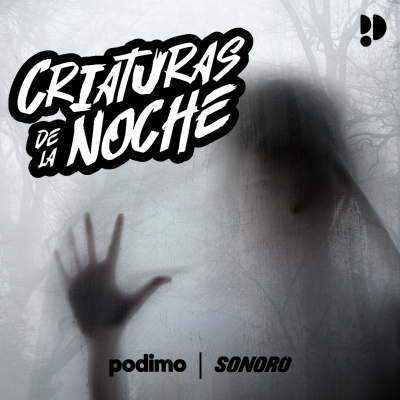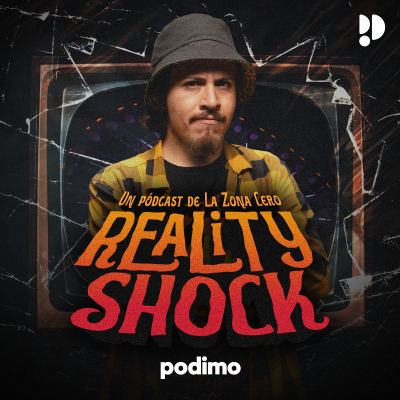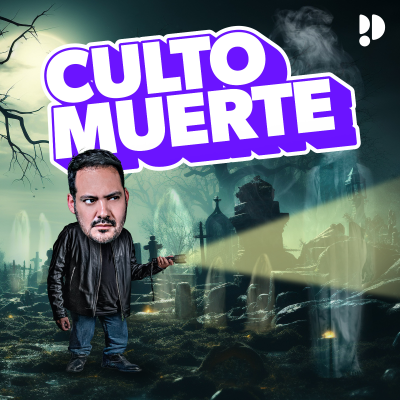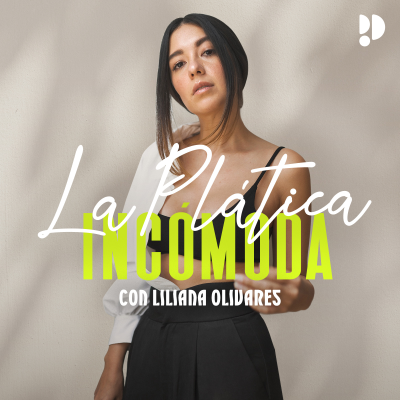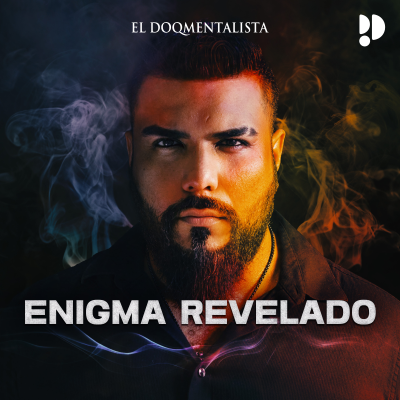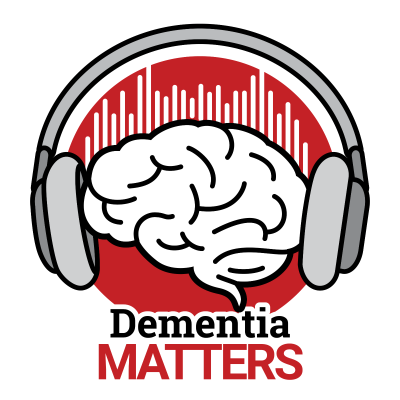
Dementia Matters
inglés
Tecnología y ciencia
Empieza 7 días de prueba
$99 / mes después de la prueba.Cancela cuando quieras.
- 20 horas de audiolibros al mes
- Podcasts solo en Podimo
- Podcast gratuitos
Acerca de Dementia Matters
Dementia Matters is a podcast about Alzheimer‘s disease and other causes of dementia. Creator and host Dr. Nathaniel Chin interviews leading scientists and caregiving experts to bring listeners the latest in Alzheimer’s disease news, research and caregiver resources. Brought to you by the Wisconsin Alzheimer’s Disease Research Center, find show notes and more resources at adrc.wisc.edu/dementia-matters.
Todos los episodios
230 episodiosHow Ultra‑Processed Foods Impact Your Overall Health
Ultra-processed foods are a hot topic in the fields of health and nutrition, but what exactly are they and how do they impact our overall well-being? Dr. Beth Olson joins the podcast to explain what this term means, describe strategies for developing a balanced diet and share a preview of her upcoming Healthy Living with Mild Cognitive Impairment (MCI) presentation, “Unpacking Ultra-Processed Foods.” Guest: Beth Olson, PhD, associate professor of nutritional sciences, University of Wisconsin–Madison Show Notes Register and learn more about the upcoming Healthy Living with MCI event featuring Dr. Olson, happening on March 6, 2026, and future programs on our website [https://www.adrc.wisc.edu/mci]. Learn more about Dr. Olson on her profile on the UW Department of Nutritional Sciences website [https://nutrisci.wisc.edu/beth-olson/]. Connect with us Find transcripts and more at our website [https://www.adrc.wisc.edu/dementia-matters]. Email Dementia Matters [dementiamatters@medicine.wisc.edu]: dementiamatters@medicine.wisc.edu Follow us on Facebook [https://www.facebook.com/wisconsinadrc] and Twitter [https://twitter.com/WisconsinADRC]. Subscribe to the Wisconsin Alzheimer’s Disease Research Center’s e-newsletter [https://www.adrc.wisc.edu/newsletter]. Enjoy Dementia Matters? Consider making a gift to the Dementia Matters fund through the UW Initiative to End Alzheimer’s [https://supportuw.org/giveto/dementiamatters]. All donations go toward outreach and production. Learn about and pre-order Dr. Chin’s book, When Memory Fades: What to Expect at Every Stage, from Early Signs to Full Support for Alzheimer's and Dementia [https://read.macmillan.com/lp/when-memory-fades-9781250400857/], out June 2, 2026.
On the Pulse: How Resting Heart Rate Improves a Dementia Risk Score’s Accuracy
What if your heartbeat could help determine your dementia risk? The CAIDE dementia risk score has long helped clinicians estimate midlife risk for dementia using cardiovascular health factors, but its accuracy hasn’t been equal across populations. New research suggests that integrating resting heart rate meaningfully improves predictive performance across most racial groups. In this interview, Dr. Newman Sze and Shakiru Alaka join us to dig into how and why resting heart rate enhances CAIDE’s accuracy, what the data shows across different racial groups, and what this could mean for earlier, more equitable identification of dementia risk in both research and clinical settings. Guests: Newman Sze, PhD, professor of health sciences, Brock University, Canada Research Chair in Mechanisms of Health and Disease, and Shakiru Alaka, MS, senior analyst, Canadian Institute for Health Information, data scientist, Western University Show Notes Read Shakiru and Dr. Sze’s study, “Enhancing the validity of CAIDE dementia risk scores with resting heart rate and machine learning: An analysis from the National Alzheimer's Coordinating Center across all races/ethnicities [https://alz-journals.onlinelibrary.wiley.com/doi/10.1002/alz.70442],” published in Alzheimer’s & Dementia online. Learn more about Shakiru and Dr. Sze’s research from this article on the Brock University website [https://brocku.ca/brock-news/2025/08/brock-led-research-drives-breakthrough-in-predicting-dementia-risk/]. Learn more about Dr. Sze and his research from his bio on the Brock University website [https://brocku.ca/applied-health-sciences/health-sciences/faculty-research/faculty-directory/newman-sze/]. Look into more of Shakiru’s research from his Google Scholar page [https://scholar.google.com/citations?user=6oKI8WwAAAAJ&hl=en]. Connect with us Find transcripts and more at our website [https://www.adrc.wisc.edu/dementia-matters]. Email Dementia Matters [dementiamatters@medicine.wisc.edu]: dementiamatters@medicine.wisc.edu Follow us on Facebook [https://www.facebook.com/wisconsinadrc] and Twitter [https://twitter.com/WisconsinADRC]. Subscribe to the Wisconsin Alzheimer’s Disease Research Center’s e-newsletter [https://www.adrc.wisc.edu/newsletter]. Enjoy Dementia Matters? Consider making a gift to the Dementia Matters fund through the UW Initiative to End Alzheimer’s [https://supportuw.org/giveto/dementiamatters]. All donations go toward outreach and production. Learn about and pre-order Dr. Chin’s book, When Memory Fades: What to Expect at Every Stage, from Early Signs to Full Support for Alzheimer's and Dementia [https://read.macmillan.com/lp/when-memory-fades-9781250400857/], out June 2, 2026.
On the Pulse: How Resting Heart Rate Improves a Dementia Risk Score’s Accuracy
What if one of the most powerful clues about dementia risk is already being captured every morning before you even get out of bed? The CAIDE dementia risk score has long helped clinicians estimate midlife risk for dementia using cardiovascular health factors, but its accuracy hasn’t been equal across populations. New research suggests that integrating resting heart rate meaningfully improves predictive performance across most racial groups. In this interview, Dr. Newman Sze and Shakiru Alaka join us to dig into how and why resting heart rate enhances CAIDE’s accuracy, what the data shows across different racial groups, and what this could mean for earlier, more equitable identification of dementia risk in both research and clinical settings. Guests: Newman Sze, PhD, professor of health sciences, Brock University, Canada Research Chair in Mechanisms of Health and Disease, and Shakiru Alaka, MS, senior analyst, Canadian Institute for Health Information, data scientist, Western University Show Notes Read Shakiru and Dr. Sze’s study, “Enhancing the validity of CAIDE dementia risk scores with resting heart rate and machine learning: An analysis from the National Alzheimer's Coordinating Center across all races/ethnicities [https://alz-journals.onlinelibrary.wiley.com/doi/10.1002/alz.70442],” published in Alzheimer’s & Dementia online. Learn more about Shakiru and Dr. Sze’s research from this article on the Brock University website [https://brocku.ca/brock-news/2025/08/brock-led-research-drives-breakthrough-in-predicting-dementia-risk/]. Learn more about Dr. Sze and his research from his bio on the Brock University website [https://brocku.ca/applied-health-sciences/health-sciences/faculty-research/faculty-directory/newman-sze/]. Look into more of Shakiru’s research from his Google Scholar page [https://scholar.google.com/citations?user=6oKI8WwAAAAJ&hl=en]. Connect with us Find transcripts and more at our website [https://www.adrc.wisc.edu/dementia-matters]. Email Dementia Matters [dementiamatters@medicine.wisc.edu]: dementiamatters@medicine.wisc.edu Follow us on Facebook [https://www.facebook.com/wisconsinadrc] and Twitter [https://twitter.com/WisconsinADRC]. Subscribe to the Wisconsin Alzheimer’s Disease Research Center’s e-newsletter [https://www.adrc.wisc.edu/newsletter]. Enjoy Dementia Matters? Consider making a gift to the Dementia Matters fund through the UW Initiative to End Alzheimer’s [https://supportuw.org/giveto/dementiamatters]. All donations go toward outreach and production. Learn about and pre-order Dr. Chin’s book, When Memory Fades: What to Expect at Every Stage, from Early Signs to Full Support for Alzheimer's and Dementia [https://bookshop.org/p/books/when-memory-fades-what-to-expect-at-every-stage-from-early-signs-to-full-support-for-alzheimer-s-and-dementia-nathaniel-chin-m-d/65c8e16190fd6721?ean=9781250400857&next=t], out June 2, 2026.
Could Managing Four Common Health Conditions Slow Cognitive Decline from Alzheimer’s?
Alzheimer’s disease isn’t always the only health condition a person faces, so how does treating other diseases impact the progression of Alzheimer’s? Researchers at the University of Arizona focused on four common health conditions – type two diabetes, hypertension, inflammation and dyslipidemia – which are known to increase the risk of developing Alzheimer’s disease, and set out to investigate whether those diagnosed with Alzheimer’s who received treatments for these four conditions also saw a delay in cognitive decline. Dr. Barb Bendlin joins the podcast to break down the findings from this research, as well as discuss the impact of personalized prevention strategies and combination therapies. Guest: Barbara Bendlin, PhD, professor, Division of Geriatrics and Gerontology, University of Wisconsin (UW) School of Medicine and Public Health, deputy director, UW Center for Health Disparities Research (CHDR) Show Notes Read the study, “Combination therapy targeting Alzheimer's disease risk factors is associated with a significant delay in Alzheimer's disease–related cognitive decline [https://alz-journals.onlinelibrary.wiley.com/doi/10.1002/trc2.70074],” published by Alzheimer's & Dementia: Translational Research & Clinical Interventions on the Alzheimer’s Association’s website. Read more about the study in the article “Four Key Pieces Managing Common Health Conditions Slows Alzheimer's Progression [https://www.naccdata.org/nacc-navigator/four-key-pieces-managing-common-health-conditions-slows-alzheimers-progression/],” published on the National Alzheimer’s Coordinating Center’s website. Learn more about Dr. Bendlin from her profile on the UW Center for Health Disparities Research website [https://chdr.wisc.edu/staff/bendlin-barbara/]. Connect with us Find transcripts and more at our website [https://www.adrc.wisc.edu/dementia-matters]. Email Dementia Matters [dementiamatters@medicine.wisc.edu]: dementiamatters@medicine.wisc.edu Follow us on Facebook [https://www.facebook.com/wisconsinadrc] and Twitter [https://twitter.com/WisconsinADRC]. Subscribe to the Wisconsin Alzheimer’s Disease Research Center’s e-newsletter [https://www.adrc.wisc.edu/newsletter]. Enjoy Dementia Matters? Consider making a gift to the Dementia Matters fund through the UW Initiative to End Alzheimer’s [https://supportuw.org/giveto/dementiamatters]. All donations go toward outreach and production. Learn about and pre-order Dr. Chin’s book, When Memory Fades: What to Expect at Every Stage, from Early Signs to Full Support for Alzheimer's and Dementia [https://read.macmillan.com/lp/when-memory-fades-9781250400857/], out June 2, 2026.
Taking Steps to Slow Decline: New Study Examines the Role of Physical Activity on Alzheimer’s Progression
10,000 – that’s the magic number of steps often recommended for a healthy lifestyle. With recent research looking into whether that number is an accurate benchmark for health, could the number of steps taken per day have an impact on brain health and, specifically, cognitive decline? That’s precisely what a new study from Harvard Medical School and Mass General Brigham sought to examine, looking at how physical activity, specifically step count, impacted cognitive decline for those living with Alzheimer’s disease. Dr. Bri Breidenbach and Sarah Lose join the podcast to break down the results of this new study, as well as share what current research says about the effect of other kinds of physical activity, such as different intensity exercises, on the brain and Alzheimer’s progression. Guests: Bri Breidenbach, PhD, scientist, exercise physiologist, Okonkwo Lab, and Sarah Lose, MS, research program manager, exercise physiologist, Okonkwo Lab, UW School of Medicine and Public Health Show Notes Read the study, “Physical activity as a modifiable risk factor in preclinical Alzheimer’s disease [https://www.nature.com/articles/s41591-025-03955-6],” published by the journal Nature Medicine on their website. Learn more about Dr. Breidenbach and Sarah Lose’s work on the Okonkwo Lab website [https://okonkwolab.medicine.wisc.edu/]. Read “Association of Daily Step Count and Intensity With Incident Dementia in 78 430 Adults Living in the UK [https://jamanetwork.com/journals/jamaneurology/fullarticle/2795819],” mentioned by Dr. Breidenbach at 12:01, on JAMA Neurology’s website. Listen to Sarah Lose’s previous episode, “Building the Brain: Finding the Cognitive Benefits of Physical Activity [https://www.adrc.wisc.edu/dementia-matters/building-brain-finding-cognitive-benefits-physical-activity],” on our website. Learn more about physical activity and the six pillars of brain health on our website [https://www.adrc.wisc.edu/prevention]. Complete the Dementia Matters Feedback Survey [https://uwmadison.co1.qualtrics.com/jfe/form/SV_eFoGuqf2V1ivaOa] to let us know what our show is doing well and how we can improve in the New Year! This anonymous survey is estimated to take about 5 minutes to complete and is open to all. Connect with us Find transcripts and more at our website [https://www.adrc.wisc.edu/dementia-matters]. Email Dementia Matters [dementiamatters@medicine.wisc.edu]: dementiamatters@medicine.wisc.edu Follow us on Facebook [https://www.facebook.com/wisconsinadrc] and Twitter [https://twitter.com/WisconsinADRC]. Subscribe to the Wisconsin Alzheimer’s Disease Research Center’s e-newsletter [https://www.adrc.wisc.edu/newsletter]. Enjoy Dementia Matters? Consider making a gift to the Dementia Matters fund through the UW Initiative to End Alzheimer’s [https://supportuw.org/giveto/dementiamatters]. All donations go toward outreach and production.
Elige tu suscripción
Premium
20 horas de audiolibros
Podcasts solo en Podimo
Podcast gratuitos
Cancela cuando quieras
Empieza 7 días de prueba
Después $99 / mes
Empieza 7 días de prueba. $99 / mes después de la prueba. Cancela cuando quieras.

